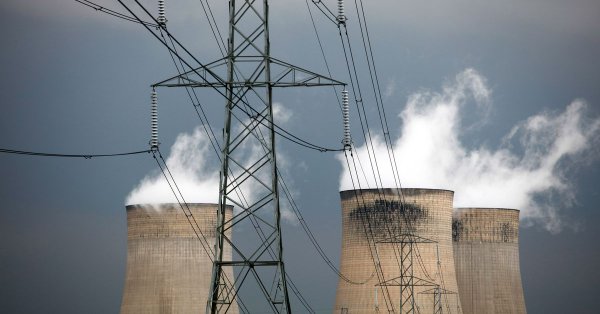IEA worries of coal plants in Asia to achieve climate change targets
The coal burning plants would "lock in the emissions trajectory of the world, full stop," IEA chief Fatih Birol told the newspaper in an interview.

Coal-fired power plants operating and under construction in Asia pose a threat to achieving the goal of halting global warming, the head of the International Energy Agency told the Financial Times on Wednesday.
The coal burning plants would "lock in the emissions trajectory of the world, full stop," IEA chief Fatih Birol told the newspaper in an interview.
Last year, greenhouse gas emissions from the energy sector -- which account for about three-quarters of the total -- rose after three years of holding steady. They are expected to increase again this year.
The Intergovernmental Panel for Climate Change sounded the alarm bell earlier this month that the increase in global temperatures needs to be held to 1.5 degrees Celsius (2.7 degrees Fahrenheit) to avoid disastrous weather changes.
To have at least a 50/50 chance of staying under the 1.5 deg C cap without overshooting the mark, the world must, by 2050, become "carbon neutral", it said in a report.
That implies that emissions from conventional power plants must soon be offset by taking an equal amount of carbon out of the atmosphere.
While wind and solar power production have now become cheaper than conventional plants to build and operate, once an investment has been made in a power plant the financial calculus is often to keep it running.
Electricity production from coal rose by four per cent last year in China, and by 13 per cent in India, according to IEA figures.
"How we are going to deal with this problem is for me the nerve centre of the climate change debate today," Birol told the Financial Times.
(With inputs from agencies.)
- READ MORE ON:
- Climate change
- Environment and Climate Change Canada
- Travel agency
- News agency
- Fossil fuel
- Fossil fuel power station
- Static electricity
- Electric current
- Financial adviser
- Financial services
- China
- Bank of China
- Paris Match
- Paris Métro
- Intergovernmental Panel on Climate Change
- International Energy Agency
- Electricity generation
- Financial Times
- International News
- PTI News










